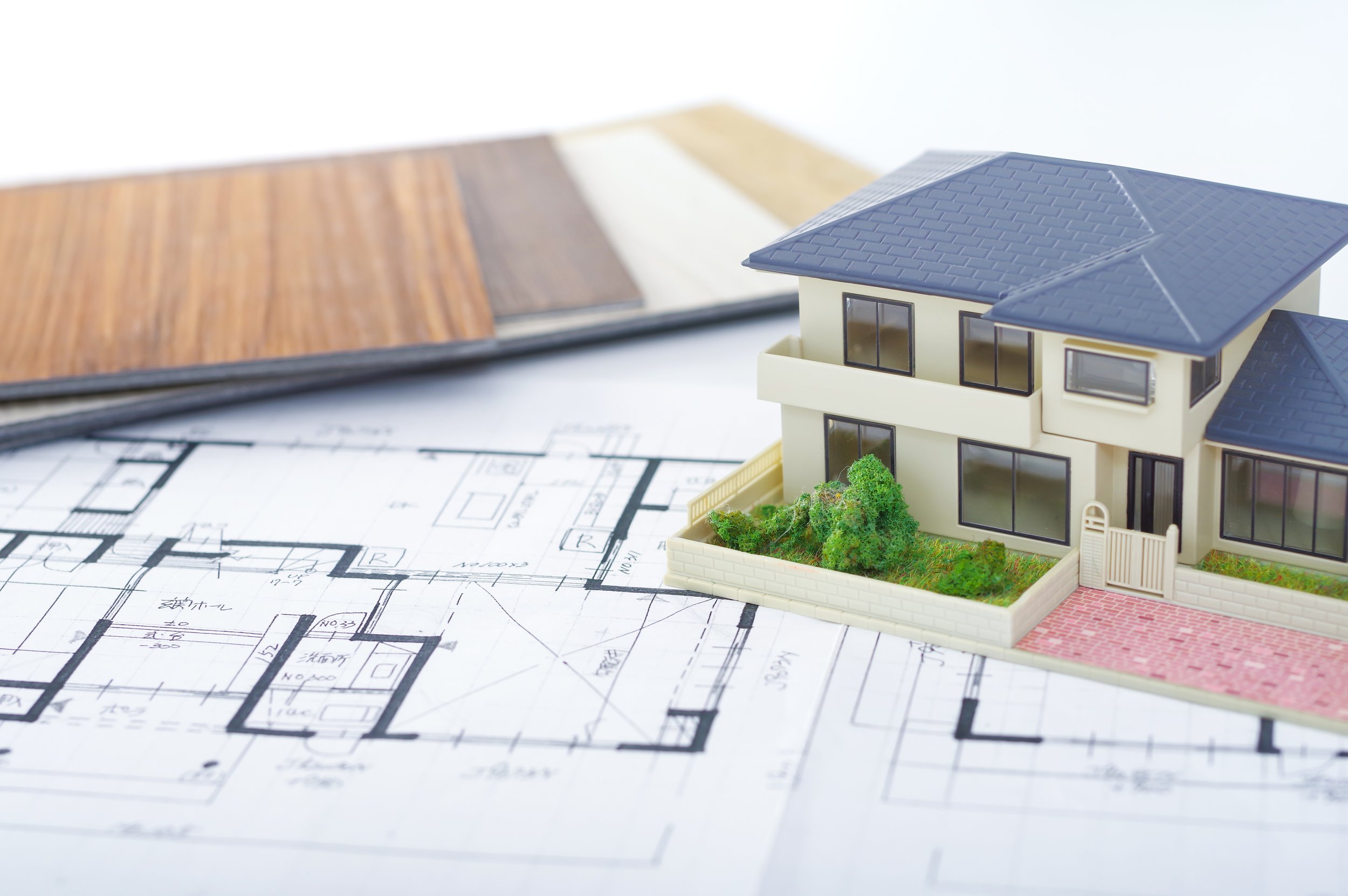Land Buying & Inspection Checklist: A Guide
Embarking on the journey of purchasing land is an exciting endeavor, offering endless possibilities for bringing your dream or forever home to life. However, navigating the complexities of land acquisition requires careful planning, thorough research, and diligent inspection.
Whether you're a first-time buyer or seasoned investor, having a comprehensive land buying and inspection checklist can serve as your roadmap to success. In this guide, we'll explore the essential steps and considerations involved in purchasing in inspecting land.
Land Buying Checklist
The following are 16 steps for buying land in San Diego.
Define Your Goals: Clarify your objectives for purchasing land, such as investment, development, recreational use, or building a home.
Establish Your Budget and Understand Your Financing Options: Determine your budget for purchasing land, including down payment, closing costs, and potential development expenses. Explore financing options for purchasing land, including land loans, seller financing, home equity loans, or personal loans, and determine the most suitable option based on your financial situation and objectives. Explore the cost of a new custom build home with our cost calculator.
Identify Preferred Location: Research potential locations for the land purchase, considering factors such as proximity to urban centers, amenities, schools, employment opportunities, and natural features.
Consider Zoning and Land Use: Check local zoning regulations and land use restrictions to ensure the land is suitable for your intended purposes, whether residential, commercial, agricultural, or recreational.
Evaluate Accessibility: Assess the accessibility of the land, including road access, construction access, proximity to highways or major roads, and availability of utilities (water, electricity, sewage).
Inspect the Land: Visit the property in person to inspect its physical characteristics, including topography, soil quality, drainage, vegetation, and any potential environmental hazards.
Survey and Boundaries (If Necessary): Conduct a survey to determine the exact boundaries of the property and ensure there are no encroachments or boundary disputes.
Review Title and Legal Documents: Obtain a title search and review legal documents, including deeds, easements, restrictions, and any encumbrances affecting the property's ownership.
Assess Development Potential: Evaluate the land's potential for development, considering factors such as zoning regulations, permitted land uses, building restrictions, and feasibility of obtaining necessary permits.
Check Environmental Factors: Assess potential environmental risks and considerations, such as flood zones, wetlands, soil contamination, endangered species habitat, and regulatory requirements for environmental assessments or mitigation.
Negotiate Purchase Terms: Negotiate purchase terms with the seller, including the purchase price, down payment, financing contingencies, closing date, and any additional terms or conditions.
Prepare Purchase Agreement: Draft or review the purchase agreement with the seller, outlining the terms and conditions of the sale, including contingencies, deposits, and deadlines.
Conduct Due Diligence: Conduct thorough due diligence on the property, including obtaining property inspections, appraisals, environmental assessments, and any other necessary investigations to assess the property's condition and value.
Secure Financing: Finalize financing arrangements and obtain pre-approval or pre-qualification for a land loan, if applicable, to facilitate the purchase process.
Close the Deal: Complete the closing process by signing the necessary legal documents, transferring funds, and officially taking ownership of the land.
Land Inspection Checklist
The following are things to consider when inspecting land for purchase.
Physical Characteristics:
Evaluate the topography of the land, including any slopes, hills, valleys, or elevation changes.
Assess the soil quality for suitability for your intended use, such as building, farming, or landscaping.
Check for drainage issues, wetlands, or flood-prone areas that may affect development or usability.
Inspect the vegetation and natural features, including trees, shrubs, water bodies, and wildlife habitat.
Boundaries and Survey:
Verify the property boundaries and survey markers as necessary.
Obtain a current survey of the property to confirm boundary lines, easements, and any encroachments.
Access and Utilities:
Evaluate the accessibility of the land, including road access, easements, and rights-of-way.
Determine the availability and proximity of utilities, such as water, electricity, gas, sewage, and internet services.
If the lot is not on sewer, review perc test and ability to put a septic system on the property.
Fire Department Requirements
Evaluate the location of hydrants relative to the property for fire-fighting capabilities, including water pressure.
Assess the characteristics of the road leading to the property and verify compliance with current regulations.
Zoning and Land Use:
Research local zoning regulations, land use restrictions, and development ordinances to ensure compliance with your intended use.
Check for any deed restrictions, covenants, or homeowner association rules that may affect property use or development.
Determine if lot is subject to any additional overlay zones, as subsequent additional requirements.
Environmental Factors:
Assess potential environmental risks and considerations, such as flood zones, wetlands, soil contamination, and endangered species habitat.
Research past land uses, historical activities, or environmental hazards that may impact the property.
Research the presence of protected species and if the lot has any environmental restrictions.
Legal and Title Issues:
Obtain a title search and review legal documents, including deeds, easements, restrictions, and any encumbrances affecting the property's ownership.
Verify property taxes, liens, assessments, or other financial obligations associated with the land.
Development Potential:
Evaluate the land's potential for development, considering factors such as zoning regulations, permitted land uses, building restrictions, and feasibility of obtaining necessary permits.
Determine the suitability of the land for your intended development plans, such as residential, commercial, agricultural, or recreational use.
Neighborhood and Surroundings:
Consider the surrounding neighborhood and community amenities, such as schools, parks, shopping centers, and transportation options.
Research nearby development projects, infrastructure improvements, or future land use plans that may impact property values or usability.
Market and Value:
Research recent land sales and market trends in the area to determine the property's value and investment potential.
Obtain appraisals or comparative market analyses to assess the fair market value of the land.
Professional Assistance:
It’s necessary you hire professionals, land consultants, general contractors, civil engineers, land surveyors, environmental consultants, attorneys, or engineers, to assist with the inspection process and provide expert guidance. You don’t want your dream home to become a nightmare, so work with professionals from the start to mitigate risk. At Buildable, we have all the services you need to evaluate land and viability of construction.
Questions to Ask During Buying or Inspecting Land
When buying or inspecting land, asking the right questions is crucial to gather essential information and make informed decisions.
Legal:
Is the lot buildable?
Are the boundaries clearly and accurately marked?
Can the seller provide title for the property?
Is it zoned for the type and size of house you are planning?
Where can you build on the site?
Does the desired house plan violate any rules: setbacks or other zoning restrictions?
Is there legal access by road or right-of-way?
Is the road privately maintained?
Are there any easements for ingress/egress or other?
Is there adequate construction access to build?
Are there any liens, rights-of-way, easements, covenants, or other deed restrictions or encroachments on the property?
Are there building restrictions due to wetlands, water, slopes, historical or cultural sites, or other local, state, or federal regulations?
Was the land formerly used to store chemicals that you will need to remedy?
Does all or part of the lot lie in a floodplain?
Are there any endangered or protected species on the property?
Construction:
Is there adequate access for construction equipment?
Are there problem soils, including expansive clay, uncompacted fill, or ledge that may require blasting?
Is lot subject to flooding?
Are there steep slopes or unstable land that requires special engineered foundations?
Will you need to import or export dirt?
Will the topography add increased construction costs?
Is the area subject to erosion that will need stabilization?
Design:
Will the lot support your vision for a home?
Are there HOA requirements?
Will the nature of the lot require a special design?
Utilities:
Is there power to the lot? Where is it located? How much to connect?
Is there water on the lot, or will it require a well?
Is there sewer access for the lot, or will it require septic?
Is high-speed internet available on the site?
What are the connection fees for utilities, including cable, phone, electric, gas, and sewer?
If the lot requires septic, does it perc or will an advanced system be needed?
Is there a fire hydrant nearby?
Cost Factors:
Is the total cost (lot + improvements + build) aligned with the neighborhood?
Is the lot being sold with a survey?
Is the lot being sold with a soils report?
How long will a road/driveway need to be?
Are there specific landscaping requirements?
Is the lot in a high-severity fire zone?
What will it cost to insure?
What are the property taxes?
What are the school fees?
What are the impact fees?
What is Land Due Diligence?
The purpose of land due diligence is to confirm the lot you are purchasing will be buildable for your custom home without material issues that could be cost-prohibitive or prevent you from executing your vision. At Buildable, we create a fully customized Land Report, which reviews 26+ risk factors to gather information about the property so you can make the best decision for your family. The process involves reviewing documentation, meeting with stakeholders from local municipalities and agencies, and reviewing necessary improvements. This is a critical step in the process, as you could potentially purchase land that won't be buildable due to a myriad of reasons.
How Long Does a Land Due Diligence Report Take?
Typically, the process will take anywhere from 17-45 days. The process can be accelerated if necessary, but there could be external factors outside of your control. Based on the unique nature of the lot, the land report may take up to 60 days.
When & Why Do I Need a Land Due Diligence Report?
Before you purchase a lot, you’ll need to do your due diligence on it. The seller will never have all the information you need to move forward confidently. We recommend the creation of a Land Report during the due diligence phase of the contract, enabling you to back out of the deal if a critical issue arises. It’s important to talk to us before making an offer as a land report is time intensive, and scheduling could be an issue without planning.
How Buildable Can Help You Find Land for a Custom Home
At Buildable, we specialize in demystifying the complex and often opaque process of land development in San Diego, CA. Our mission is to guide our clients smoothly through their projects, helping to avoid common pitfalls while saving both time and money. From the outset, Buildable takes the lead, leveraging our network of reliable partners to ensure your project is not only completed within budget but also meets your timeline. From helping you find land to the final inspection, Buildable is your one stop shop for custom home builds. To learn more about how we can assist you and to discuss your specific project needs, schedule a consultation with us here.
Read More About:




